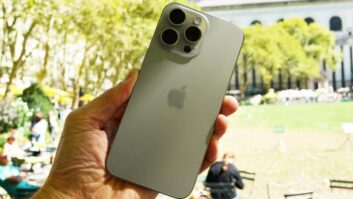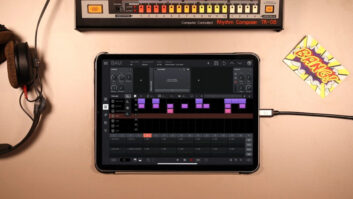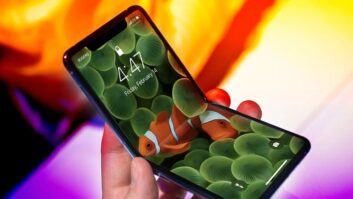Remember the BenQ JoyBee? The RCA Lyra? The Rio Forge 128? They were all casualties of the iPod in its march toward portable music player domination.
And if you’re paying attention, this whole lopsided Apple vs. the world scenario is playing itself out again in the nascent tablet PC wars.
This week, HP finally bowed its long-awaited webOS-based TouchPad, the 2,764th (give or take) iPad competitor. HP joins numerous Android tablets along with the RIM BlackBerry PlayBook, the e-book-cum-tablet Nook Color and, soon, whatever Microsoft with Windows 8 and Amazon are said to be cooking up, tablet-wise, in trying to core Apple.
How are these iPad alternatives doing? If you have to ask…
First I have to say I find this whole tablet brouhaha more than just absurd. A little more than a year ago, the entire technology industry was gleefully falling over itself predicting the device no one thought anyone would want or buy and that Apple had stupidly named for a sanitary napkin would end the Cupertino company’s mobile dominance.
Go ahead – amuse yourself with the stories listed in a Google search of “Apple iPad fail February March 2010 -2011” from, like I said, a short 15 months ago. HIGH-larious.
And yet, here we are a year and nearly 20 million iPads sold later and all those iPad poo-pooers now insist they have a better tablet. I don’t know if I should laugh or laugh harder.
Even more shocking,according to comScore, iPads account for 97 percent – NINETY-SEVEN PERCENT – of all tablet Web traffic in the U.S., 89 percent globally. Someone’s not using their tablets.
Is there any hope for non-iPad tablet makers? Not in the short term.
COMPETITIVE IMBALANCE
Yes, the iOS ecosystem is a huge hurdle for Apple’s tablet competitors to overcome. One way to combat iPad’s ecosystem advantage is by offering tablets at lower prices, which few have.
Most of the big name wannabees have illogically priced their tablets higher than iPad, a situation that reminds me of the old Catskill joke: “The food is so bad here,” comments one diner. Replies the other, “Yeah, and such small portions!”
A couple of lower profile tablet makers have figured this out; for instance, the upcoming 10.1-inch Toshiba ThriveAndroid 3.1 tablet due to ship in a couple of weeks is priced at $430 for the 8 GB version, compared to the 8 GB iPad at $499.
But with Thrive’s lower price comes a reduction in a key specification – seven hours of video viewing battery life vs. iPad’s 10 hours. Toshiba is not alone. Shorter battery life is another problem plaguing iPad’s competitors.
NO CLIO WINNERS HERE
Worse, these iPad competitors rushed into the market faster than Usain Bolt. But, like Monty Python’s 100-yard sprinters with no sense of direction, they had no idea where they were going. Sure, they worked out the technical stuff, but it’s obvious they haven’t figured out why people would buy one.
Why obvious? Check out tablet commercials, as I did for this column. What can you do with an Android or BlackBerry tablet? According to Motorola, Samsung and BlackBerry tablet commercials, you can learn to double-dutch jump rope, be encased in some futurist pod and watch four videos at the same time, activities all worth spending $500-$800 on.
The funniest excuse for a tablet purchase rationale is presented in the latest Motorola Doom commercial in which a sales woman reads the mind of the male customer. He wants to buy a Xoom but wonders silently, “How can I convince my wife?” The telepathic sales lady spouse-convincing response?
“Your wife will love the dual core Tegra 2 chipset.”
I don’t mean to be sexist, but how many wives who don’t have an engineering degree would even understand what a “dual core Tegra 2 chipset” is? And even if she understood it, she’d love it? My wife, who works for IBM and therefore groks the idea of a dual core chip, loves Bravo’s Housewives of… shows, sushi, Twitter, museums, power walks in the park and, hopefully, me. Chipsets? Not so much.
And we’re wondering why iPad continues to dominate the tablet market?
RETAIL CONSEQUENCES
Even without these marketing missteps, iPad should maintain its short term dominance the same way iPod did – because of the sheer number of competitors.
In the cell phone world, consumers are used to multiple operating systems and multiple vendors, so the ever-increasing number of Android phones have enabled the Google OS to compete with iPhone.
But in the tablet world, there’s no established usage pattern for consumers to latch on to. It’s too new a category.
So, with consumers already puzzled about what they’d do with a tablet, too many OS choices becomes paralyzing. So as we do when confronted with a “War & Peace”-length menu at a diner, we shrug and just make the simplest, truest choice: a burger. iPad is the burger of the tablet world.
Until other tablet makers create a convincing purchase rationale and pricing argument, iPad, like iPod before it, will continue to be the red meat of the tablet industry for a long time to come.
Stewart Wolpin is a contributor to Digital Tech Consulting













